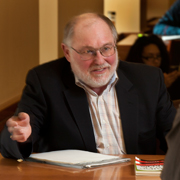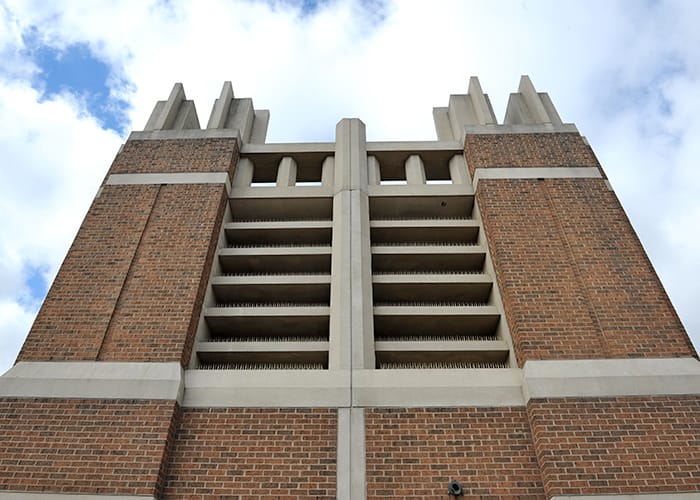 2012 Haggerty Award for Research Excellence Recipient
2012 Haggerty Award for Research Excellence Recipient
Professor and Research Professor of Social and Cultural Sciences
You’ll have to forgive Dr. Gale Miller if you catch him eavesdropping on a conversation. He’s just doing his job. Miller, professor and research professor of social and cultural sciences and the 2012 recipient of the Lawrence G. Haggerty Faculty Award for Research Excellence, has spent more than 30 years studying how people use language to make sense of the world. One of his favorite places to practice? Coffee shops.
“They’re very captivating places,” Miller said. “From friends to business people to cashiers, the types of conversations that happen and how people interact are insightful.”
After initially focusing his research on the use of language in work environments, Miller turned his attention to family therapy in the late 1980s. He was instrumental in helping to define a revolutionary movement in psychotherapy known as Solution-Focused Brief Therapy, which focuses on solutions rather than problems or causes of problems. This approach replaces diagnosing and classifying a patient’s problems with therapist-client discussions about how patients can function despite those problems, as well as what an improved situation would look like.
Miller is currently applying his background in language utilization and family therapy to study families of individuals imprisoned for sexual offenses. Working with Dr. Mary Ann Farkas, associate professor of social and cultural sciences, he has interviewed adults from 85 families of offenders who have continued to visit and communicate with imprisoned relatives. They’re trying to learn more about how family members understand and cope with the circumstances of their loved one’s incarceration, and how their support benefits former inmates during reentry into society. The goal of their research is to identify key social coping mechanisms for families that will lead to the development of policies that improve the experiences of offenders in prison and that ease their transition back into their families and society.
“Gale has accomplished what few other social scientists have achieved. He has blended sociological theory, social scientific research method and analysis, and practical application,” said Roberta Coles, professor and chair of the Department of Social and Cultural sciences. “He’s left his mark across the world in both academic halls and therapy clinics.”
 2012
2012 